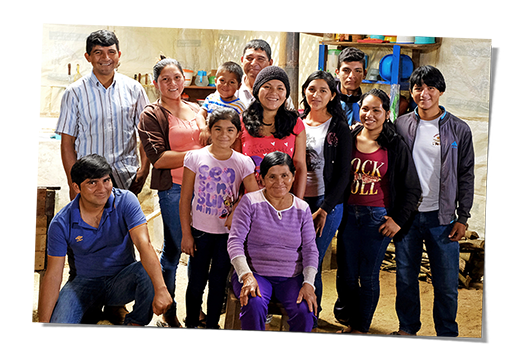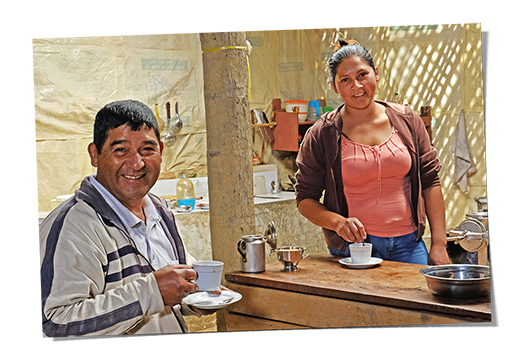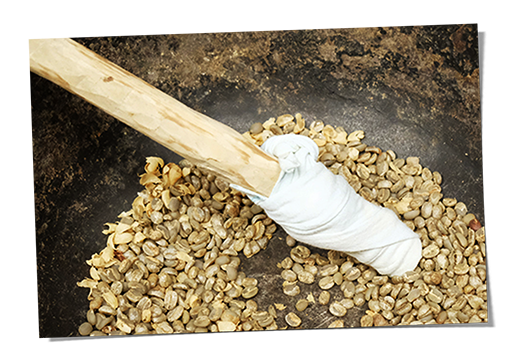WHERE A STRONG COMMUNITY CREATES HIGH-QUALITY COFFEE.
Growing coffee in Peru is no easy task. Thin air, steep slopes, rugged terrain – not the best conditions for coffee cultivation. But together, everything becomes easier. That’s why farmers have joined forces in powerful cooperatives.
One of them is Central Fronteriza Del Norte De Cafetaleros, or CENFROCAFE for short, which has been Fairtrade-certified since 2007. This cooperative grows organic Fairtrade coffee for Café Intención near the Ecuadorian border.
The organic coffee beans thrive on steep slopes at over 1,600 meters above sea level. Those who cultivate and harvest them must put in a lot of effort. But it's worth it: the result is highland coffee of exceptional quality.
At CENFROCAFE, it's not just about fair coffee beans but also about people and community. The cooperative is strongly committed to the education and training of its members. All members can also invest in their future through a microcredit system, allowing them to send their children to school or build a home.
What remains from the cooperative’s earnings is reinvested in sustainable agriculture initiatives and infrastructure improvements. This ensures that each generation has it a little easier than the previous one.

When coffee tastes like the future.
A visit to the local farmers quickly shows how much family and community matter here. That’s why coffee producers like Amaro Chasquero Jaramillo (56) take great pride in producing organic Fairtrade coffee. Despite the hard work involved in coffee farming in Peru, it has allowed him to invest in a farm for his family and establish his livelihood at over 1,000 meters above sea level.

Amaro has been an organic coffee producer for many years. Like many others, he has witnessed the positive developments in coffee cultivation over the years. This progress is due to both accumulated experience, which makes tending and harvesting easier, and investments in equipment and infrastructure.
Despite these advancements, organic coffee farming remains labor-intensive compared to conventional methods. Many tasks are still done by hand, such as separating the coffee bean from its parchment shell, known as pergamino. The coffee cherries are wrapped in cloth and repeatedly pounded against a flat wooden board until all residues are removed. But this hard work pays off—not only through fair wages but also through the enjoyment of their own freshly harvested coffee.

Peru’s Coffee Specialties: Pasado, Cortado, and Plenty of Time.
How do people who grow organic coffee enjoy it themselves? Simple: once the beans are fully cleaned, they are carefully roasted right on-site. This roasting process happens on a smaller scale—often in a simple pan. The people here take their time with roasting and grinding to achieve the best possible flavor.
Instead of Espresso or Latte Macchiato, the most popular coffee specialties in Peru are Café Pasado and Cortado.
Café Pasado is a strong coffee concentrate traditionally brewed in a cafetera. This device resembles an Italian moka pot but works like a coffee filter. Ground Fairtrade coffee is placed in the upper chamber, and hot water is poured over it, allowing the concentrate to slowly drip into the lower chamber.
Relatively new to Peru’s coffee culture is the Cortado—a strong espresso with just a splash of milk. Why do people in Peru prefer their organic coffee almost pure? Counterquestion: why dilute the excellent coffee flavor they’ve worked so hard to achieve? Exactly.